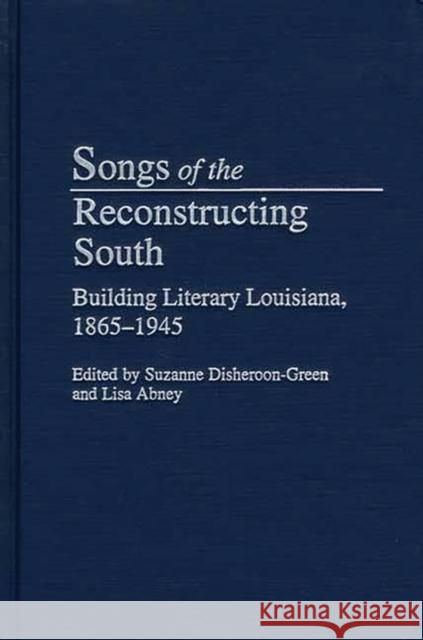Songs of the Reconstructing South: Building Literary Louisiana, 1865-1945 » książka
Songs of the Reconstructing South: Building Literary Louisiana, 1865-1945
ISBN-13: 9780313320460 / Angielski / Twarda / 2002 / 240 str.
Songs of the Reconstructing South: Building Literary Louisiana, 1865-1945
ISBN-13: 9780313320460 / Angielski / Twarda / 2002 / 240 str.
(netto: 342,30 VAT: 5%)
Najniższa cena z 30 dni: 355,74 zł
ok. 30 dni roboczych
Bez gwarancji dostawy przed świętami
Darmowa dostawa!
The South has a rich cultural legacy and that of Louisiana is especially strong and diverse. Despite its similarities with the rest of the South, Louisiana has a distinct cultural identity rooted in the colonial impulses of France and Spain, the evolution of gender roles, the importance of religion, and the dramatic shift in racial politics after the 1803 Louisiana Purchase. Perhaps because of its diversity, it has inspired numerous writers, some of whom have contributed greatly to American literature. This book explores the influences at work on Louisiana writers and those writing about Louisiana from the end of the Civil War through World War II.
These writers reflect the effects of Louisiana's culture, politics, and colonial heritage. Such writers as Alice Dunbar-Nelson, Lyle Saxon, and George Washington Cable characterize the racial caste system, pointing out the flaws in its construction and its effects on relationships. Ruth McEnery Stuart, Kate Chopin, and Sallie Rhett Roman depict the lives of women in Louisiana and their struggles when taking on nontraditional roles. And William Faulkner and Arna Bontemps draw upon narrative and folk traditions, which provide the foundations for their works. Chapters are grouped in sections devoted to three of the broadest influences on writers of the era: women, work, and culture during Reconstruction; the impact of Modernism; and issues of race and class.











